|
"Make sure you take a milk!" At lunch time, there was always a teacher's aide to remind us that our meals were not complete without one of the small boxes of milk piled up in huge bins at the end of the lunch line. Despite my former love affair with cheese I've always hated the taste of milk. The beverage that came in those little red & white boxes were absolutely disgusting to me and I did whatever I could to avoid having to drink it. When forced to, I would place a box of milk on my tray only to surreptitiously toss it in the nearest garbage bin once I was out of view of any nearby adults.
On luckier days, there would be some chocolate milk on hand. The sweet, chocolate flavor went a long way towards covering up the taste of the milk, and it was a whole lot easier to go down - or so I thought. Little did I know then that it was contributing to the near constant stomach aches, unbearable gas and frequent, unpleasant trips to the bathroom that I experienced as a child. My complaints were so frequent that my mom would schedule trips to the doctor's office, only to be told that they could find nothing wrong. I often wish that I'd had the luck of coming across a physician like Dr. Milton Mills, one with the knowledge and awareness to ask the questions necessary to diagnose what should have been fairly obvious: lactose intolerance. Instead, I made my way into adulthood continuing to consume dairy on a regular basis, though I'd long left my chocolate milk days behind. I was under the impression that dairy was a necessary part of my diet, providing nutrients like calcium and vitamin D that would supposedly build strong bones. As a child in public school, I was constantly being fed the message that I needed dairy. From the Got Milk? posters on the walls to those adamant lunch aides, countless authority figures in my life told me that dairy was a necessary and healthy part of my diet. But how can my body need something that clearly causes it harm? Lactase deficiency affects 60-80% of the Black population in America. This means that the majority of Black people in the United States do not possess the lactase enzyme necessary to properly digest dairy. Hispanic, Asian and Indigenous Americans also experience high rates of lactose intolerance and are unable to consume dairy without some sort of negative consequence. Thousands of Black children across America who are over-represented in high poverty public schools are depending upon their schools to provide breakfasts and lunches, as well as some general guidance regarding proper nutrition. The U.S. Dietary Guidelines is exactly where school administrators and policy makers turn to in order to formulate the menus for places like public schools. So why does the U.S. continue to push dairy as a necessary part of a healthy diet if a substantial portion of its population can't even digest it properly? One would hope that by now, given all the research available on the negative health effects of dairy, that these guidelines would be adjusted. Canada, for example, got rid of its 3 cups a day recommendation back in 2019, opting instead to group dairy in as a protein option. The U.S. Dietary Guidelines, however, continues to treat dairy as its own food group, recommending upwards of 3 cups of milk per day. One may respond that to their credit, the U.S. Dietary Guidelines have been updated to state that a comparably nutritious soy milk beverage may be substituted for cow's milk. But how does this translate into practice? The guidelines may allow for additional options, no doubt to save face, but what about cash-strapped public schools? I highly doubt that any of them can afford to provide an additional bin full of little boxes of soy milk for their lactose intolerant students. Not to mention that the MyPlate diagram, which is more public-facing and accessible than the 164-pg U.S. Dietary Guidelines document, continues to feature a cup simply marked "dairy". The diets of children aren't my only cause for concern. The guidelines continue to recommend 3 cups of milk per day into and throughout adulthood, despite research suggesting a link to various illnesses, including cancers. It has been found that women who consume even 1 cup of cow's milk per day had a 50% increase in their chances of breast cancer. This is particularly concerning for Black women, who die from breast cancer at rates 40% higher than their white counterparts. Black men are also disproportionately affected by illnesses linked to dairy consumption. A 2015 meta-analysis of 32 different studies found that dairy consumption increases risk of prostate cancer, and Black men have the highest rates of death from prostate cancer. The U.S. Dietary Guidelines stress that establishing healthy eating patterns in youth have a major effect of dietary patterns later in life. If such is the case, then it does a major disservice to Black children to insist that they must consume dairy, or to teach them that dairy is the only way to receive certain nutrients. Without a deliberate push to provide alternatives while making it clear that not consuming dairy is perfectly fine, the message received by most will be that dairy is a dietary necessity. I honestly call bullshit on the notion that the Guidelines were purely scientific and created with everyone's best interest in mind. If such were the case, then it wouldn't be so blatantly misleading. To present dairy as its own food group implies that dairy in and of itself contains nutrients that cannot be readily found elsewhere, which is patently false. It also does this while presenting paltry, insubstantial recommendations for other more nutritious foods. For example, while calcium can be readily found in green leafy vegetables, it is only recommended that they be consumed in quantities of 1.5 - 2 cups per week. Similarly, beans and legumes, which are also good calcium sources, are recommended at an intake of only 1-2 cups per week. This is compared to 3 cups of dairy per day, in spite of the fact that greens and beans provide exponentially more nutritional value than a cup of milk. I find it hard to believe that if lactose intolerance were not disproportionately suffered by Black people and other people of color that dairy would continue to be promoted as a recommended part of one's daily diet. It is difficult to ignore the contradictions and biases apparent in what should be a purely scientific and informational document, and it is difficult to ignore the racial disparities in poor health outcomes related to dairy consumption. Maybe if kale and lentils had powerful corporate lobbies behind them ensuring that their product was prioritized, promoted and subsidized with taxpayer dollars, the Guidelines might read quite differently.
3 Comments
When I decided for the second time to adapt a plant-based diet, I did tons of research on the health effects of eating meat and dairy, and so much of what I came across was extremely disturbing. Take for example, the fact that heart disease, the world's leading cause of death, may actually start in the womb. Or the fact that consumption of animal foods are directly correlated with the development of heart disease, while plant foods are protective. I thought back to the copious amounts of cheese, eggs, pork and chicken I ate over the course of my life and knew that I had to reverse the early stages of heart disease that had been building since childhood.
This was just the tip of the iceberg, but the more I learned, the more I knew that I could never, ever go back to eating animal foods. But I did start to worry about people I know who still eat a standard American cheese, egg & meat-heavy diet. It's something that's discussed often within plant-based circles, the stress of submerging our concern for loved ones who we know would greatly benefit from changing their diet. We don't want to be that asshole who bombards people with unsolicited nutrition advice. Or we know that if we say something, we'll inevitably be subjected to a vicious verbal backlash. So we say nothing, and let them be. But it can be painful as hell to watch people you care for continue to harm themselves with the foods they eat. Lately, my husband and I have come to realize that because we're both pushing 30, we're only a few years away from watching people we know succumb to diseases that are largely linked to what's on their plate. I honestly feel a certain level of urgency to speak up more frequently and more loudly about how important it is to take diet seriously, and with all the available scientific and anecdotal evidence regarding the protective benefits of plant food, I need to be a more enthusiastic advocate. According to the CDC, 48% of African American women have some form of cardiovascular disease. While 7.6% of Black women have full-blown heart disease, many more have heart disease and aren't aware of it, largely because there are often no real serious symptoms until it's too late. A whopping 64% of women who die from heart disease have no previous symptoms at all. As a Black woman, I sometimes get frustrated. While there's a lot of talk about the stresses we experience as a demographic, and lots of vague discussions about the importance of self-care, there isn't nearly enough discussion about the importance of nutrition. Maybe it's a lack of knowledge, and if that's the case then I hope that this can help fill that void. It isn't stress that's killing us, it's heart disease, and while stress can absolutely pull the trigger, our weakened, congested arteries are the loaded gun. This isn't to give any credence to the all too common stereotype that Black women are fat, lazy and unhealthy, because not only is this ridiculous, it ignores the fact that people of other races and genders are all living lifestyles that contribute heavily to heart disease, and they, too are dying from it. However, I do want to shed light on a sad truth: heart disease is ravaging the world and as Black women, we're uniquely positioned to not only develop the disease, but to also die prematurely from it. We speak often about the medical neglect that Black women are all too often subjected to, precisely because of the negative stereotypes that are rife within the medical field. One most recent example is the case of Serena Williams' birthing scare, which helped to further highlight longstanding racial disparities in maternity deaths. I know from personal experience what it's like to go to the doctor and not be treated for my symptoms, but for whatever my doctor thinks must be wrong with me purely because I am a Black woman. This has happened on countless occasions. Sometimes it really does feel like we're the only ones who seem to take our emotional and physical pains seriously. I say all this because, while I do believe that more individuals in general could benefit from taking control of their health, I think this is even more true for Black women. We've learned too many times before that being our own advocates is a matter of life and death. We have to begin and sustain a serious conversation about preventing poor health in the first place, and all of my research has convinced me that change must start on the plate. The risk factors for heart disease are high blood pressure, high cholesterol, smoking, overweight/obesity, physical inactivity, and diabetes. According to the most recent available NIH statistics, 37% of Black women have high blood pressure, 20% of Black women smoke, almost 50% of Black women have high cholesterol, nearly 80% are overweight or obese, and 55% are physically inactive. While there are lots of initiatives that overtly teach the public how to quit smoking and how to start exercising, there's a lot of tip-toeing around the dietary aspects of these diseases. Even the most well-meaning, health conscious woman can fall victim to these illnesses, because our food landscape can be somewhat of a minefield. You might be trying to avoid sodium because of your blood pressure, but you might not know that your chicken has already been injected with salt. You might be eating less red meat, but it might not be making much of a difference. As a matter of fact, Dr. Kim Williams, former president of the American College of Cardiology, explains that his switch to a plant-based diet came when his supposedly healthy boiled, no-skin chicken diet led to his own high cholesterol. I'm going to be quite clear because I wouldn't forgive myself if I did the same kind of half-assed tip-toeing that we find in the media and other public health initiatives. The only scientifically proven way to prevent and even reverse heart disease is via a vegan, plant-based diet. It's one of those things where there's no half-stepping. Vegetarianism isn't the answer either, because eggs and cheese also contribute to heart disease. I write this not just for older Black women who are suffering from high blood pressure or cholesterol, but also for those my age who think they're invincible because there are no real signs that anything is wrong. Sometimes the first sign that something is wrong is death. This is my plea, from a place of love, for us to start prioritizing this particular type of self-care, where we feed our bodies with whole plant foods that nourish us, fortify us and build us up, not break us down - because the world does more than enough to try to break us down already. Photo Source: Feel Rich Can we talk about pain for a minute? Recently I wrote about my struggle with emotional eating. I understood that I was eating my pain long before I kicked the habit for good. Of course, it started insidiously. For most of my teenage years much of my emotional eating was done on autopilot. I lived for the rush that came from the food I was eating, but I wasn't quite aware that that was the case. I would eat enough that the pain would become imperceptible, and I would remain distracted right up until it was time to eat again. This worked for many years, but the pain continued to mount. The stress continued to grow, my worries became bigger, and eventually, food simply wasn't enough to hide the fact that I was hurting.
I suspect that this is how it goes for a lot of people. By the time we even become aware that we have a problem, it's already become habit. We do it every day, multiple times per day, and because the harm isn't immediate it's easy for us to wake up in the morning and do it all over again. But at some point, the signs start to appear. The consequences start to creep up, slowly but surely. We know that we have to change, but we're in so deep that it seems like such an impossible feat, and even when we decide we're ready, we struggle to fight the temptations. The behavior has become so ingrained in our everyday life that it's hard to get control of it. We've become addicted. So why am I bringing this up? Recently I watched a new documentary on Netflix called 'Feel Rich', which features several Hip-Hop stars discussing the importance of wellness in "the Black community" (I hate to refer to us as a monolith but bear with me), and the urgent need for us to take the health of our minds, bodies, and souls seriously. At first blush the concept almost seems condescending, rich rappers telling regular folk that true wealth lies in health, and I admit I was skeptical initially. However the film stirred up some emotions that ultimately changed my mind. The film has an important message, and it needs to be heard. What I saw in the film is a level of vulnerability rarely seen in Hip-Hop. In an industry that thrives on maintaining a facade of invincible masculinity, it was refreshing to see men being real about their own struggles with food, drugs and health. But, considering that many of their peers are prematurely dying at an alarming rate, it was very much so coming from a sober place of urgency. On top of the varying degrees of violence that Black people face daily, the overwhelming lot of us are being victimized by the food we put on our plate. You might say, "well, we choose what we eat". Well my response is, yes you do, but no you don't. Fact of the matter is that systemic racism, in the form of supermarket redlining, food deserts, and fast food that targets us as kids combined with the levels of stress that comes with trying to navigate various systems of oppression on a daily basis places Black people in a unique position. Not only do we tend to have less access to healthy food, but we're also facing high levels of stress while being presented with very few healthy coping mechanisms. Our environments (and often, our paychecks) dictate that the chicken joint, the Chinese food spot & the liquor store are our most viable options, and when it comes to short-term comfort, they do provide relief. But the long term effects are absolutely devastating, and we're seeing them occur in real time. For Black Millennials, we only have to look to the elders in our families for signs of what may come. We all have some instance of high blood pressure, diabetes, cancer, obesity or heart disease within our families. But what makes the issue of health even more crucial for us is that while many of our elders only started consuming fast and junk "food" in high amounts as young adults or older, many of us have been consuming these things since early childhood. Millennials in general are experiencing diseases like colon cancer much earlier than usual. Children are presenting with diseases like type 2 diabetes which used to only be seen in adulthood. Many of us think that we have time to spare before we truly have to begin taking our health seriously, but the truth is that most of us should be trying to reverse the damage that has already been done. To me, the film's most powerful message is that a certain amount of power over our health has been wrested from us, and we desperately need to take it back. Make no mistake, too many of us, like most Americans in general, are addicted. If it ain't the cheese that you simply can't give up, it's bacon or donuts or pizza or liquor or pharmaceuticals. We just can't seem to live without these things because they were there to catch us when we were at our most vulnerable, and for many of us, this started in childhood. Yes, we pick our poisons, but in so many ways, our poisons choose us. Recognize that when our neighborhoods are forcibly saturated with fast "food" restaurants and supermarkets with shitty produce (if there are any markets at all), then what we put in our mouth is still being controlled and decided for us. The only difference is that now it's purposely addictive and killing us slowly, and we're shelling out our cash to pay for it. The consequences are seen not only in the high rates of illness, but also in everyday life, from the inability to focus, to the inability to move unhindered, to the inability to regulate our emotions. There is no part of our daily life that is not affected by our nutrition. Urban gardener Eugene Cook said it best in the film, "Stabilizing the food system allows for the great thinkers, the great musicians, the great healers, the great teachers to come because they're being born into a society that nourishes them. We grew food as a communion with nature, with an understanding that everyone should eat... but everyone should eat the best possible food so we can get the best possible results from every member of the society". We can't expect collective progress if the community potential is stunted by poor health. None of this is meant to absolve the many systems that are guilty of perpetuating racial inequality, however. In whatever ways we can, we must always seek to hold these systems accountable, whether they're our local police precincts, community planners, health administrators, or otherwise. But I think that it is a huge mistake to place all our bets on these systems changing. We simply don't have the time. Whatever we can do to place pressure on these systems must be done, but we need nourished, healthy, clear-thinking citizens to do the work. Self-empowerment isn't the sole answer to racial and class liberation, but it's an essential tool in the arsenal against oppression. As Black Millennials, we need to be healthy enough to be at the forefront of the struggle for true transformation and progress within and outside of our communities. But first we have to be willing to be vulnerable. We have to be willing to look at ourselves honestly, and confront our addictions. To do so, we must be willing to confront our pain. For me, that meant finding a therapist, but I know that that is a privilege that not many of us have. The film does a great job at offering viable solutions that most people can try. Taking up meditation is something that anyone with a few minutes to spare can do. Volunteering at a community garden is a great way to not only reconnect with nature and real, fresh foods, but it's a way to create important communal bonds while helping to offset the oversaturation of junk food in our communities. Choosing to eat as well as your circumstances allow (of course, I advocate a plant-based diet) is a major step that can quite literally change your life. Ultimately, we have to believe that we're worth the effort that it takes to take care of ourselves. We're worth the effort that it takes to actively and consistently choose to meditate, or workout, or eat a healthy meal. Not only are we worth it, but we deserve it. We've spent so much of our lives facing all kinds of stress, and trauma and pain, and this often cruel world gave us junk food and other addictive substances to cope. Wellness isn't just for rich, white folk. We've been made to believe that wellness is only for people who can afford it, but that's bullshit. Wellness is in our roots, we just need to dig deep enough to find it. Photo Source: PETA In the past few months since I've gone vegan, I've come to realize that to be both Black and vegan is to occupy a very unique social space. To be honest, it can be a terribly frustrating, anxiety-provoking place to be in. To be Black, on the one hand, is to be subject to racial discrimination on a multitude of levels. This isn't something that I'm willing to debate because this is simply fact. This is my lived experience and this is the lived experience of my loved ones and countless Black people across the world. It's been analyzed, researched, studied and written about time and time again, so I tend to view any argument to the contrary as willful ignorance stemming from a deep lack of empathy.
It is emotionally taxing to have to constantly assert that my life matters. It is painful to have to simultaneously mourn the revolving door of bodies victimized by our country's inherently racist systems while being forced to try to prove the very existence of those systems in the first place. It eats away at you, every day, living in fear that you or someone you love is going to be next. It's from these sentiments that the Black Lives Matter movement arose. It is a necessary rallying cry in the face of continued mass incarceration, systemic institutional abuse and neglect, and senseless death. So when people counter with "No, it's not just Black lives, ALL lives matter", it's extremely difficult not to become angry. Because let's be honest, it's an empty, obtuse, willfully ignorant, and unsympathetic response to a necessary assertion about the value of Black lives. To be frank, it's a slap in the face. So when I see this attitude within the veganism movement, I can't help but feel angry, deeply frustrated, annoyed, and hurt. It's not simply a bunch of animal memes with 'All Lives Matter" slapped across them, it's the anti-Black sentiment from which the phrase popped up. It's the fact that the people posting these memes also believe that Black people are simply whining about nothing, and that the true victims are the poor, helpless animals being abused for food and profit. It's a direct rebuke and denunciation of a movement that was birthed from a place of true oppression, and it baffles me. It's amazing that there are people that can eloquently tell you about the workings of the systems that allow for animal abuse but then they can't think two steps ahead to see how these very same systems affect human life. Even worse, a true knowledge of history would show that these systems, the barbaric ways in which these animals are treated in pursuit of profit, were perfected on the bodies of my ancestors. Indeed, slave women were forcibly bred to produce more slaves for the slave master. My ancestors' bodies were used, abused, and discarded based on how much crop, and by extension, money, could be made off of their labor. It's funny because, many mainstream vegan organizations like PETA are very much aware of this, because they use these comparisons to bolster their arguments for why people - and people of color specifically - should go vegan. But here's the problem: that is not their comparison to make. There's a reason why Black people are still extremely sensitive to being compared to animals. For one thing, the direct comparison to apes has been one particularly nasty way that racists have sought to dehumanize us. But even more than that, despite what many Americans choose to think, the ravages of slavery don't simply exist in some distant past that has no consequence on today. We see the remnants in our mass incarceration system, we see it every time an unarmed man, woman, or child is killed by the state-employed entities that are paid to protect them. And even if we didn't still have to contend with racial discrimination in our schools, in our workplaces, in housing, in our banks, and in so many different facets of our lives, the pain, suffering and trauma experienced by our ancestors is literally ingrained in our DNA. We also see the ways in which people don't care, the ways in which they show us that they have more compassion for animal death than Black death. We saw more outcry over the death of Harambe than the death of 7-year-old Aiyana Stanley-Jones or 12-year-old Tamir Rice. Even in the face of video evidence, we rarely see justice for the deaths of unarmed citizens whose worst crime was coming across the wrong police officer. We've been mourning for centuries, and the mourning still continues. At the same time, however, it would be extremely disingenuous to simply pretend that the comparisons aren't apt. Because it is true. Just as there are corporations sitting on stacks made off of the forced enslavement of Black people, there are corporations raking in cash using the same tactics and the same type of inhumane treatment on animals. The first time I learned about the forced breeding of cows, I was instantly reminded of law professor Dorothy Roberts' book Killing The Black Body in which she writes: "Some slaveowners also practiced slave-breeding by compelling slaves they considered 'prime stock' to mate in the hopes of producing children especially suited for labor or sale". She also states, "Because a fertile woman was more valuable to her master, she was less likely to be sold to another owner... Women who did not produce children, on the other hand, were often sold off - or worse. Slaveholders, angered at the loss of their investment, inflicted cruel physical and psychological retribution on their barren female slaves". This thoroughly researched, poignant text then goes on to track the ways in which Black bodies, and female Black bodies in particular, have been continuously subjected to government control through forced and coercive birth control, forced removal of children, and more. As a Black woman, I know what my body and those of the Black women who have come before me have meant to this country. It is a horrific story of pure exploitation, abuse, and control. That all being said, I couldn't help but feel heartbroken the first time I saw a video of a cow desperately chasing after its newborn calves who were being carted off to make veal. I can't help but be disgusted by the notion that in order to produce dairy milk, cows are continuously artificially inseminated, because only lactating cows who have just given birth can produce milk. When I see the stomach-churning, cramped, unhygienic conditions under which animals are held prior to being slaughtered, I'm not only turned off from the idea of consuming them as food, but I'm also angered at the fact that they're being treated this way at all. It felt completely contrary to my values to denounce this kind of systemic treatment among marginalized human populations and then passively support it just so that I can eat bacon. To say going vegan has changed me is an understatement because I, too, once believed that animals were beneath me, and I paid very little attention to the horrors of contemporary animal agriculture. But I've seen too much and I know too much. My gut instinct to draw comparison between the treatment of animals and the historical & continued maltreatment of my own people doesn't come from a place of dehumanization or minimization. It comes from a place of pure empathy for other living beings that are also fully capable of feeling anguish, pain, and despair. It comes from understanding the inhumane systems that trade in bodies, human and animal alike, for the sole purpose of corporate profit. The comparison stands because the system has and does continue to treat us like animals, and neither of these abuses are okay. That being said, when PETA and other popular vegan organizations and individuals draw on the suffering of Blacks, Native Americans, and other historically oppressed humans in order to further their agenda (and noble as it may be, an agenda is still an agenda) it feels exploitative and disrespectful, because it doesn't come from a place of compassion for all. It comes from a place of compassion for animals at the expense of a group of human beings who are still fighting day in and day out to be treated like their lives also matter. This isn't a foundation for progress, it's a continued minimization of our pain. It is misguided and hypocritical. If the goal is to get people to extend compassion to other species, try extending some compassion to your fellow humans first. Photo Source: Eduardo Muñoz Alvarez/Getty Over the weekend, I got a response to my last blog post that was upsetting and triggering on multiple levels. It took me a long time to build up the courage to start blogging, and when I did I knew that it would be inevitable that I would receive comments that would piss me off. However, this comment wasn't the type that I was expecting, mainly because I don't believe that the comment came from a place of malicious intent. It came from a place of pure, unadulterated ignorance. But that's the thing about racism. It's so deeply ingrained in our culture that even the most well-meaning of people can perpetuate it without realizing. The comment, in the form of a tweet, went something like this:
"You're an endangered species. Blacks have so much power if only they'd get up off their pity-pot and Go Vegan #empathy #god" I was quite upset to receive this comment, for so many reasons. For starters, to be referred to as an "endangered species" in a way that was meant to be a compliment was terribly shortsighted in a time where Black people of all ages are disproportionately victimized by police. I know that this woman meant that it was rare to see someone like me, Black, educated, and vegan, writing about my triumph over my own personal health struggles, but on this, she was also terribly wrong. It might be rare for anyone living under a rock, but anyone paying attention would realize that Black people like me are everywhere. To be called an "endangered species" was patronizing and dehumanizing all at once, even if the realities of police violence, poverty, poor healthcare and overall institutionalized racism lend a kernel of truth to the statement. If we are "endangered", it is due to a system that consistently devalues human life, especially when that human is Black, or Native, or an immigrant, or Muslim, or disabled. The saddest part about this statement is that it fails to realize that in spite of all our socioeconomic and religious differences, we are of the same species. But it was the pity-pot portion of the comment that really got under my skin. It was a complete minimization of the very real struggles that Black people have faced and continue to face every single day. It was an infantile version of the bootstrap theory, basically insinuating that Black people could achieve equality if only we'd pull ourselves up by our bootstraps and get to work. It reinforces the notion that Black people are inherently lazy, that we want handouts when really all we want is to be treated as equals and left the hell alone. Her entire comment was couched in stereotypes. She meant that I was "different" from "those other" Black people, like the ones she probably only ever comes across on television. Her idea of our "power" is probably influenced by the ever-circulating idea that if Barack Obama can do it, then so can the rest of us. What gets me though, is the "#empathy" at the end of her statement, because it might be the most ironic part of all. How amazing it is that people can find enough empathy to relate to the pain and suffering of all other creatures on this planet while blatantly refusing to recognize the pain and suffering of their fellow humans. I can hardly say I'm surprised though, as Black pain is constantly being minimized and ignored. I was ready. I was getting all my research together to write a kick-ass blog post about the pervasive persistence of systemic racism, to rail about the limitations of empathy among certain fellow vegans, etc. But then I was reminded of this gem of a quote from the wise Toni Morrison: “The function, the very serious function of racism is distraction. It keeps you from doing your work. It keeps you explaining, over and over again, your reason for being. Somebody says you have no language and you spend twenty years proving that you do. Somebody says your head isn’t shaped properly so you have scientists working on the fact that it is. Somebody says you have no art, so you dredge that up. Somebody says you have no kingdoms, so you dredge that up. None of this is necessary. There will always be one more thing.” I did not create The Black Vegan Diaries to teach people about racism. I did not start this blog to go toe-to-toe with people who refuse to acknowledge the suffering that stares them right in their face. The internet is awash in information for anyone who actually cares enough to understand. People aren't marching in the streets, working day in and day out in their communities, lobbying their elected officials, and doing all kinds of anti-racism work just because they're looking for pity. I'm doing this because I have first-hand knowledge of what it's like to be Black while trying to be and do so many other things in this life. I know what it's like to be on the receiving end of racism, implicit and explicit alike. I know my struggles and I know the struggles of my people, especially when it comes to our health and well-being. I know that our pain is real and my goal is to address it, regardless of whether or not people think that our grievances are valid. There are a whole lot of problems that I truly believe can be improved by going vegan, but systemic racism is not one of them. |
AuthorMy name is Nivea, but you can call me Niv. I'm an independent Plant-Based Nutrition & Fitness Coach hailing from the Bronx, NY. Archives
August 2021
Categories
All
|

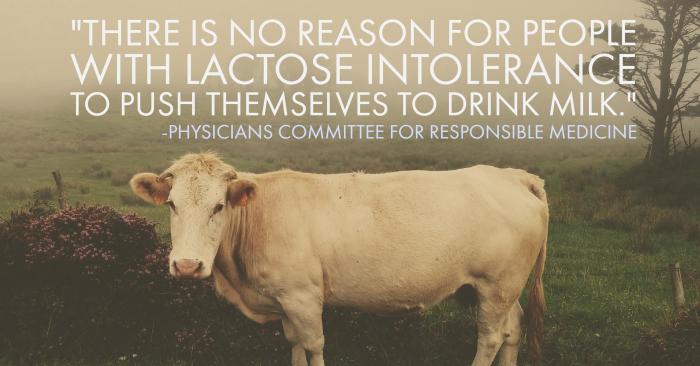
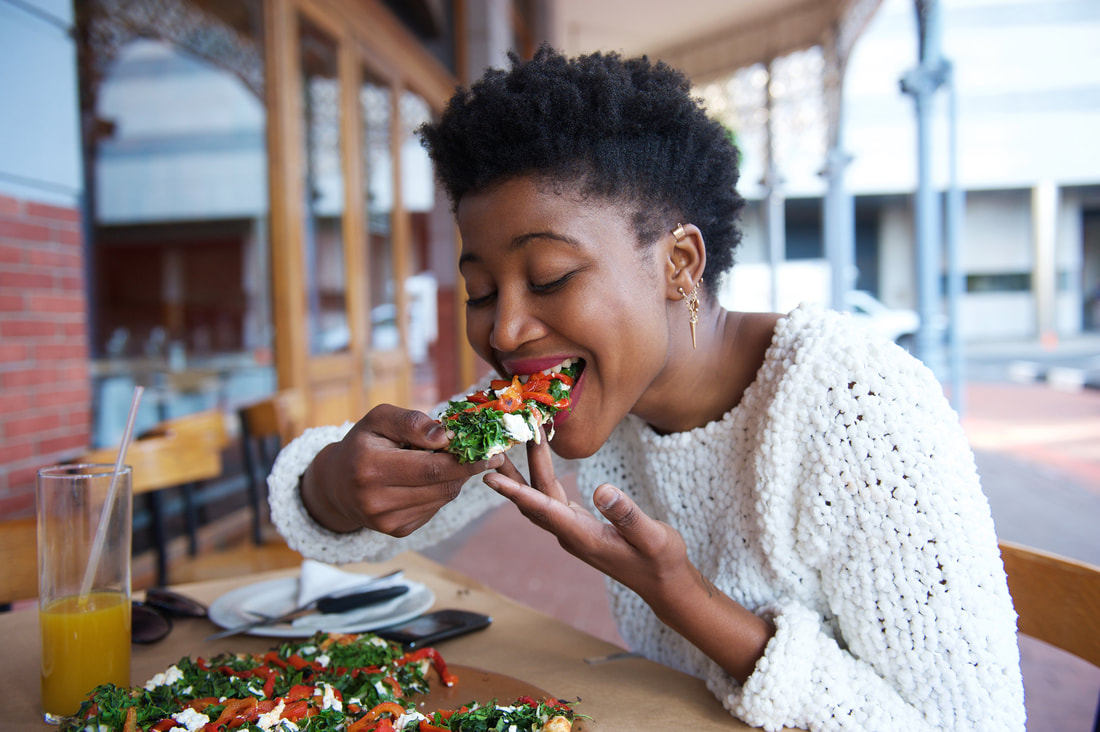
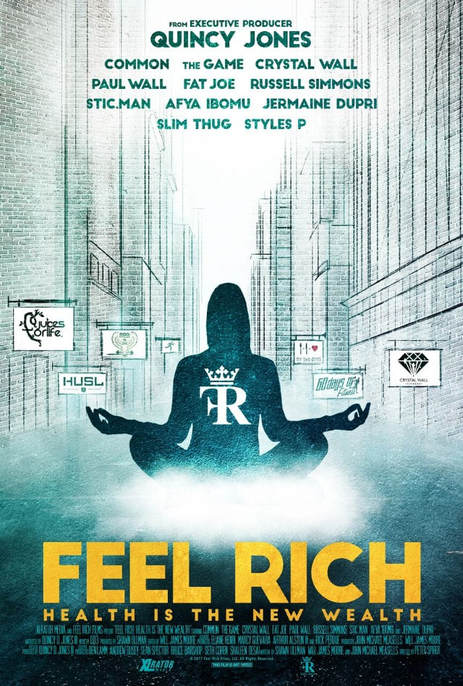
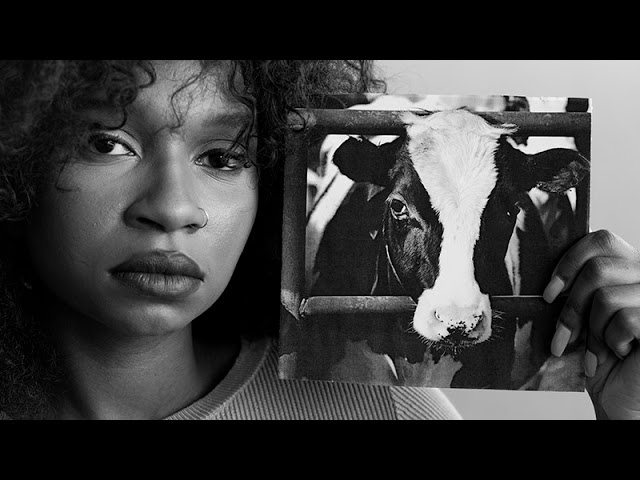
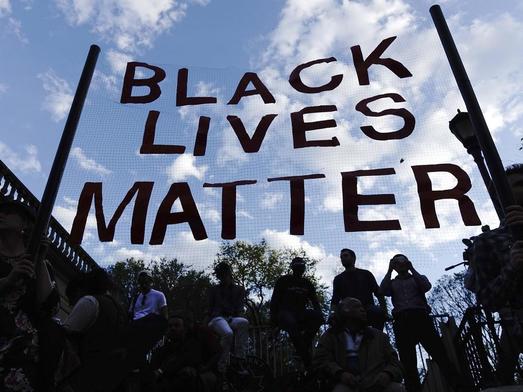
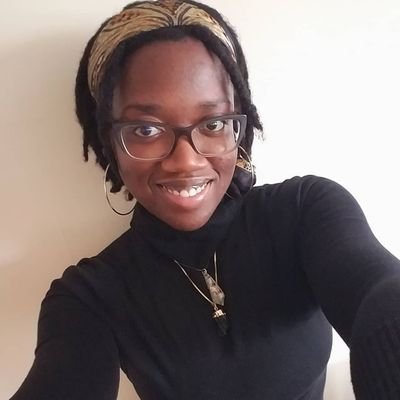
 RSS Feed
RSS Feed